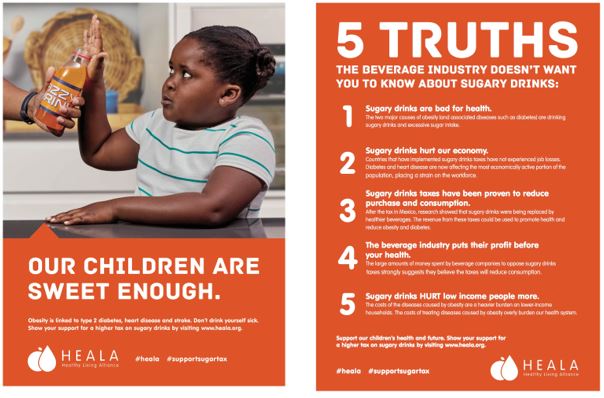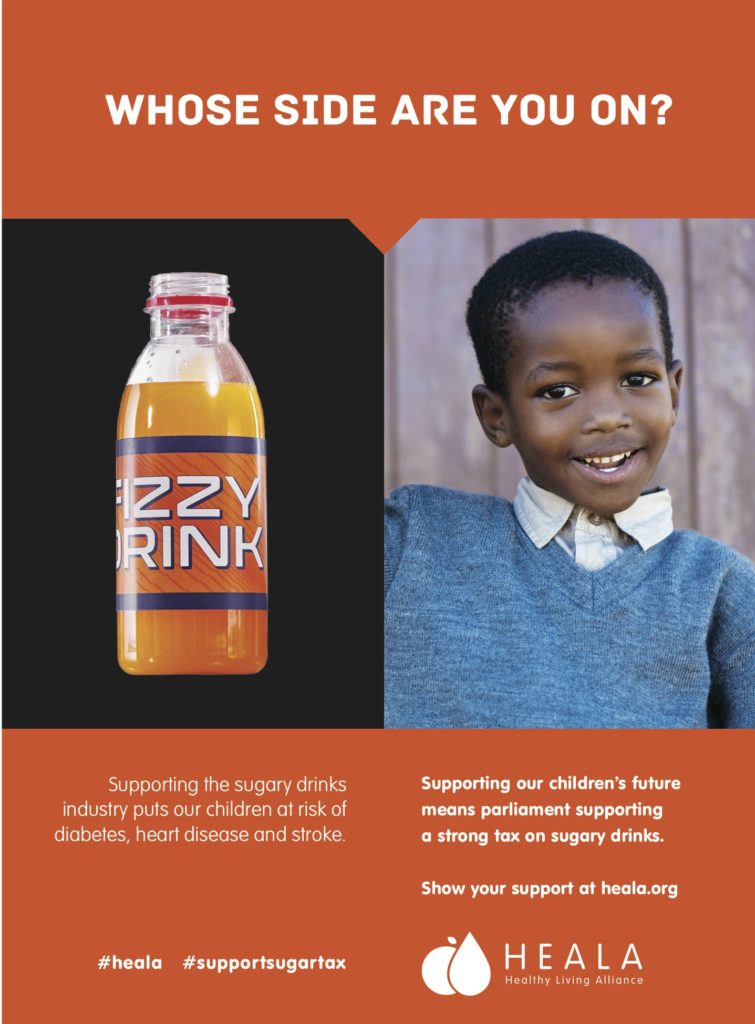South Africans are among the world’s top 10 consumers of sugary drinks–a trend with serious consequences for health and life expectancy. Rates of obesity and diabetes have increased and, according to the country’s national statistical service, diabetes is the country’s second biggest killer after tuberculosis.
In a momentous decision in November 2017, nearly two years ago, South Africa’s National Assembly passed a bill to make the country the first in Africa to implement a tax on sugar-sweetened drinks. The Health Promotion Levy came into effect in April 2018 and was applied to non-alcoholic drinks with added sugar or flavoring, syrups and other concentrates, cocoa powder and malt extract, and non-alcoholic beer, at a rate of 11%. According to the National Treasury, it raised about USD 202 million in revenue after just one year. The changes in government policy and public knowledge and attitudes have been just as important, and an effective communications strategy from local advocates played a key role in delivering that change.

Communications played a key role in persuading policymakers and the public
With support from Vital Strategies, a coalition of South African groups–including the Healthy Living Alliance (HEALA), which focused on public communications–mounted an impactful, multi-phase strategic communications campaign to build public support for the levy. Between 2016 and 2018, the partners planned and implemented three national mass media campaigns to increase knowledge about the harm of sugary beverages and build public understanding that a levy would be a win for public health. Decades of industry advertising aimed at getting consumers to consume sodas and similar sugary beverages mean the campaign had a signficant challenge–changing long-established positive attitudes towards sugary drinks. The campaign led with two powerful advertisements “Are you drinking yourself sick?” and “My Journey – What Sugary Drinks Did to Me”, focused on the proven health harms of sugary drinks. These messages used imagery and messages that contrasted sharply with the happy and healthy imagery typically used in sugary drinks marketing. A third ad, “Dad knows best” featured a father modelling healthy behavior by choosing water instead of a sugary drink–showing that it’s easy to make a healthy choice. Each ad was developed to reflect the everyday lives of South Africans, making the issues relatable and easy to understand.

Evaluations before and after the campaigns demonstrated the positive effect on public knowledge and attitudes. Unconditional support for the levy increased from 42% of respondents in October 2016 to 58% in July 2017. Seventy percent of respondents approved of the levy, as long as the revenue collected would be invested in programs to benefit the public. These results were used to gain further earned media coverage and to support the advocacy message in briefings for policymakers and other stakeholders.
“The Health Promotion Levy proves that it’s possible to achieve policy wins which protect the health of our people if civil society, researchers and other stakeholders rally together with tenacity and commitment. We succeeded despite mounting pressures from industry and political groups,” said Lawrence Mbalati, Programme Manager of Healthy Living Alliance (HEALA). “This was a victory for all South Africans and we will continue to steadfastly defend them against industry giants that care more about profit than people.”
Industry continues to challenge the levy
In the 2019 budget speech, the Finance Minister announced that the levy would increase in line with inflation. Sugary drinks companies and their allies immediately responded to try undermine the levy, citing potential job and profit losses. Local partners quickly mobilized to refute these claims through social and news outlets, including a feature in leading newspaper the Daily Maverick and an op-ed on the truth about job losses from Professor Sue Goldstein of Priceless SA, a research unit based at Wits University School of Public Health.